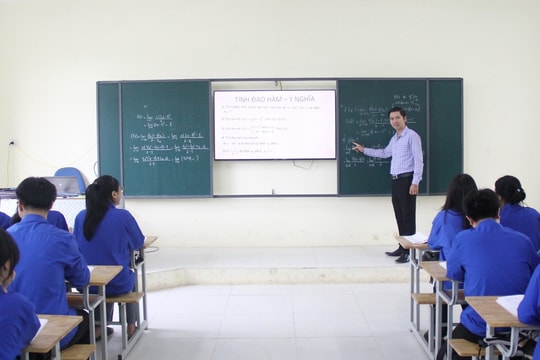Draft Law on Teachers removes many bottlenecks in education
The Draft Law on Teachers mentions many new points about teacher policy and can remove many difficulties and bottlenecks in education.
Removing many difficulties and bottlenecks
At the 8th session of the 15th National Assembly, discussing in the group on the morning of November 10, Prof. Dr. Nguyen Thi Lan - Director of the Vietnam Academy of Agriculture, National Assembly delegate of Hanoi City highly appreciated the efforts and endeavors of the drafting agency and the reviewing agency who have been meticulous, serious and spent a lot of time organizing conferences, seminars, listening to and absorbing comments to complete the draft.Law on Teachers.
The draft has mentioned many new points about policies for teachers such as: legal status of public and non-public teachers, standardization of teacher titles, recruitment, transfer and secondment policies for teachers; policies on protecting and attracting teachers.
According to the draft law, teachers are protected through rights and prohibitions for teachers; attracting and employing highly qualified people... salary treatment policies for teachers.
Prof. Dr. Nguyen Thi Lan noted that the above new points are consistent with the practical situation and can remove many difficulties and bottlenecks in the education sector. However, the Hanoi delegation requested the drafting agency to review to ensure consistency in legal regulations, ensuring the feasibility of the approved draft law.
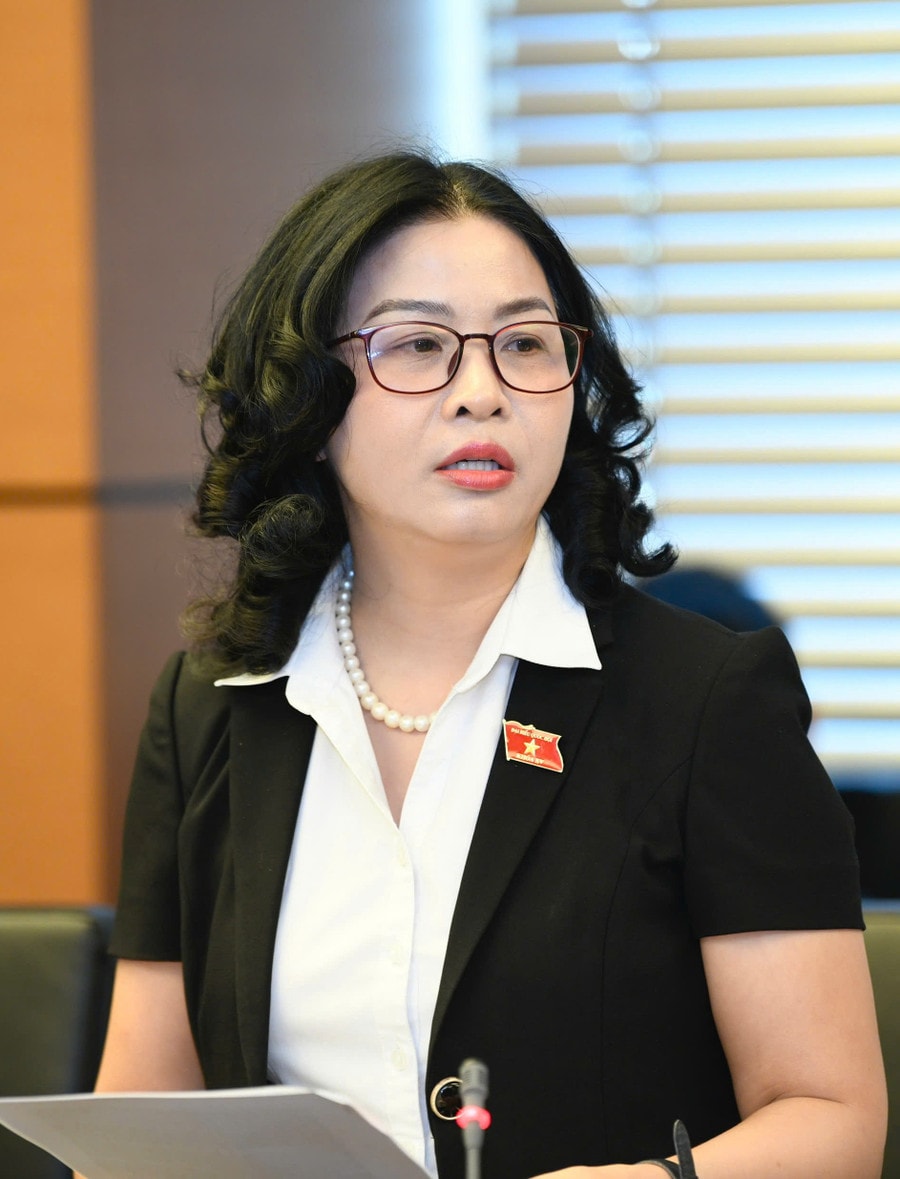
Some issues need to be clarified further.
With the hope that the draft Law on Teachers will be further improved before being passed by the National Assembly, Professor Nguyen Thi Lan suggested that the Drafting Committee consider clarifying a number of issues:
The first,Regulations on the rights of teachers. At Point d, Clause 1, Article 11 of this draft, the rights of teachers are stipulated as follows: "To conduct scientific research and transfer scientific research products according to the provisions of law on scientific research and intellectual property; to participate in activities at production and business establishments appropriate to their expertise and profession".
This is a permissible norm, understood as: teachers are given the right to conduct scientific research and transfer scientific research products; at the same time, are allowed to participate in activities in production and business establishments appropriate to their expertise and profession.
However, according to the provisions of Point b, Clause 2, Article 17 of the 2020 Law on Enterprises, cadres, civil servants and public employees as prescribed by the Law on Cadres, Civil Servants and the Law on Public Employees do not have the right to establish and manage enterprises in Vietnam.
Prof. Dr. Nguyen Thi Lan raised the question, it is necessary to clarify which activities and stages of production and business activities teachers are allowed to participate in at production and business establishments in accordance with their expertise and profession? Are teachers allowed to establish or participate in establishing and managing enterprises?
“If not clarified, it will lead to different understandings of the law, making it difficult to implement in practice, and possibly unintentionally violating the provisions of the law” – Prof. Dr. Nguyen Thi Lan worried and suggested that the drafting agency review, clarify and unify the provisions at Point d, Clause 1, Article 11 of the draft Law on Teachers and the provisions at Point b, Clause 2, Article 17 of the 2020 Law on Enterprises.
Monday,Article 34, Section 2 stipulates that teacher training and development is a regular, continuous and lifelong learning activity. The Director of the Vietnam Academy of Agriculture suggested that it is necessary to clarify the training, development and international cooperation for teachers who are managers.
Leaders, heads of educational institutions, especially at universities, principals and directors need to be trained and promoted in international cooperation.
Through international cooperation to update, improve knowledge and promote internationalization. However, the number and duration of overseas business trips of public university principals/directors are limited. This limits the training, fostering and promotion of international cooperation for teachers who are managers, as well as for training institutions.
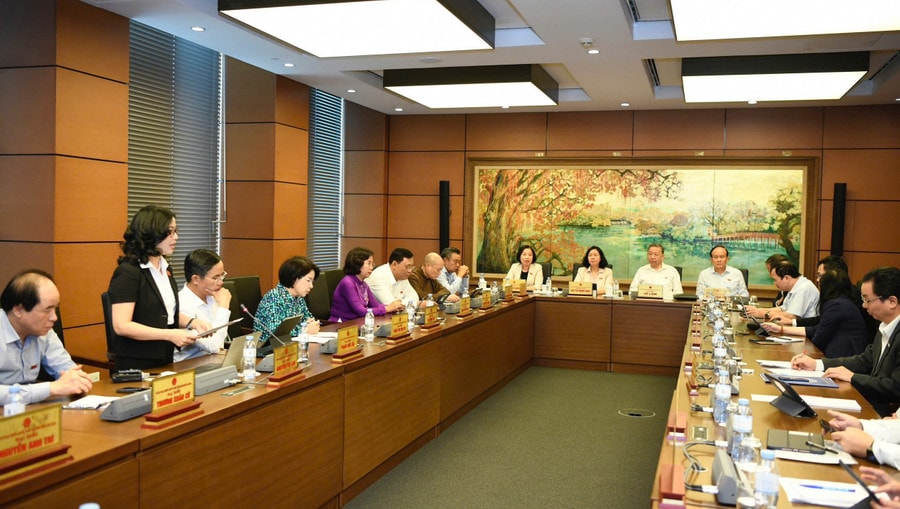
Professor Nguyen Thi Lan recommends that competent authorities consider:
One is,Regulations should open the time for overseas business trips depending on the content and program of the trip (including the program and time working abroad).
Because the delegations on business trips abroad often work with foreign schools and partners to discuss research cooperation, training, and lecturer exchange. Therefore, the regulation of 3 days for each country is sometimes not suitable.
Second,Regulations should increase the number of overseas business trips for key leaders, managers, and heads of educational institutions to expand international cooperation and implement the policy of international integration and internationalization of educational institutions, especially universities/academies.
Tuesday,not directly but related to the rights and obligations of teachers in international cooperation. According to Decision No. 06/2020/QD-TTg dated February 21, 2020 on the organization and management of international conferences and seminars in Vietnam, higher education institutions must apply for permission from the Ministry in charge; meanwhile, the regulations do not clearly state the scale and how much funding is considered international cooperation, so the management agencies understand that: there is only 1 foreign expert, only 1 co-sponsor, or online meetings must also ask for permission like for large conferences and seminars, with many foreign experts coming, causing difficulties for universities, research institutes in particular and the research and education system in general to organize international cooperation conferences and seminars.
Meanwhile, developed countries allow schools to be autonomous in academic expertise and organize conferences and seminars. According to Professor Nguyen Thi Lan, in other countries, in universities, organizing conferences, seminars and academic exchanges is normal and daily.
Most of them do not distinguish between international and regular conferences because there are many international guests. If the regulations are like ours, the regular small conferences of departments abroad also need permission, because they often invite international experts to report/share/exchange.
Wednesday,Sending foreign experts to work in the locality needs more specific guidance. In most countries, Vietnamese teachers and scientists, when granted a visa to enter that country/region, can freely travel to work in the provinces/regions/territories in the region.
For example, if you already have a visa to work with a university in Europe in the Schengen area, you only need to submit a travel plan in your visa application once, then you are free to travel.
While experts come to work and cooperate in Vietnam (have been granted a visa) to work at an agency in one locality, when going to work in other localities, the inviting agency must make a report to other localities, each locality has a different processing procedure.
Delegates suggested that when a guest has entered an agency/organization to work, he/she only needs to contact the other agency/organization directly without having to report or ask for permission at the provincial foreign affairs department.
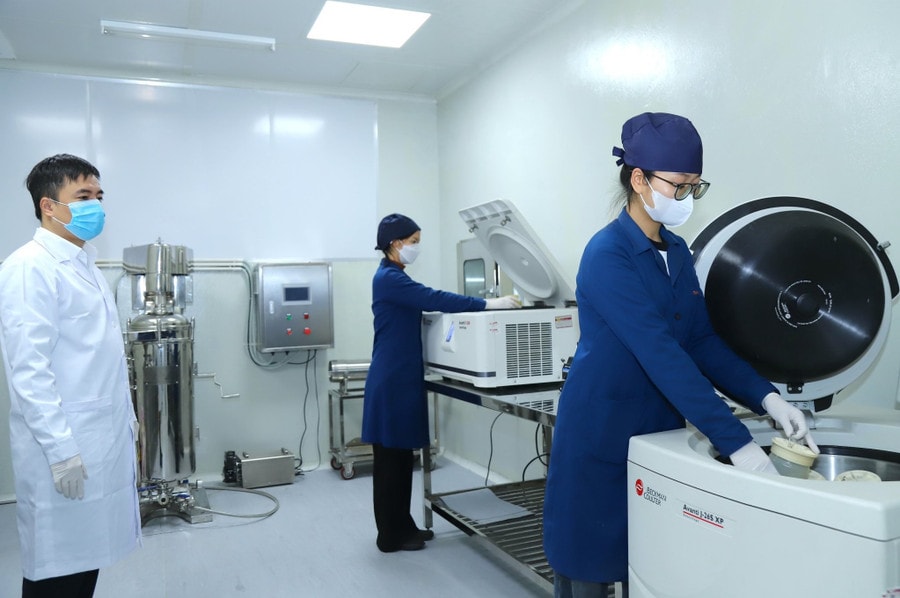
Consider some other specific issues
Commenting on some other specific points of the draft Law on Teachers, National Assembly delegate Nguyen Thi Lan suggested considering and supplementing to clarify the concept of "educational institution" and agree with the Law on Education; thereby having a correct and unified understanding of "educational institution".
In addition, it is necessary to unify the definition of teacher between Clause 1, Article 66 (Law on Education, 2019) and in the Draft Law on Teachers. Besides, there is also a difference between "continuing education" in the draft and "other educational institutions" in the Law on Education 2019.
To ensure the effectiveness and feasibility of the policy of attracting and employing highly qualified, talented and specially gifted people to become teachers, it is necessary to link it with the remuneration policy. This issue is also stated in Clause 7, Article 12 (Law on Higher Education amended in 2018). Therefore, it is necessary to consider adding a policy of "appropriate remuneration" to be consistent with and consistent with this Law.
National Assembly delegate Nguyen Thi Lan acknowledged that this draft Law on Teachers has institutionalized the Party's viewpoints and policies on the position and role of teachers in the cause of national development, aiming to perfect the legal system on teachers; at the same time, proposing a number of specific and breakthrough policies to develop, elevate and honor the teaching profession, and overcome current shortcomings in State management of teachers.

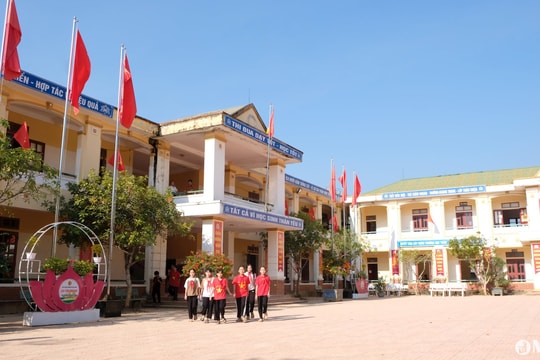
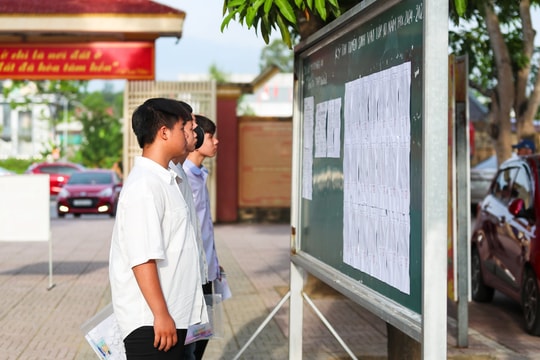
.jpg)
